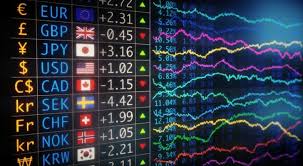
In the vast landscape of financial markets, forex trading signal Forex Vietnam holds a prominent position as a platform for currency trading. Among the various tools at traders’ disposal, Forex trading signals have gained significant attention for their potential to enhance trading performance. This article delves into the intricacies of Forex trading signals, offering insights into their types, methodologies, and practical applications.
What are Forex Trading Signals?
Forex trading signals are indicators or suggestions that help traders determine the optimal times to buy or sell currency pairs. These signals can be generated by technical analysis, fundamental analysis, or can be provided through signal services that aggregate trading insights from various data sources.
Types of Forex Trading Signals
Understanding the different types of Forex trading signals is essential for any trader looking to leverage this tool effectively. The primary types of Forex trading signals include:
- Technical Signals: Based on chart patterns, price movements, and technical indicators such as moving averages, MACD, and RSI. Traders use these signals derived from historical data to make future predictions.
- Fundamental Signals: Derived from economic news and events that can impact currency values. Traders monitor economic indicators, interest rate changes, and geopolitical developments to make informed trading decisions.
- Sentiment Signals: Based on market sentiment, these signals reflect the mood of traders. Measures of sentiment can guide traders on whether to go against the crowd or align with prevailing market trends.
- Automated Signals: Generated by algorithms and trading bots that analyze market data in real-time. These systems can execute trades on behalf of traders or provide alerts to human traders for manual intervention.
Benefits of Using Forex Trading Signals
Traders utilize Forex trading signals for various reasons, each contributing to improved trading efficiency and profitability. Some benefits include:
- Simplified Decision-Making: Trading signals can help streamline the decision-making process, making it easier for traders to identify potential opportunities without getting overwhelmed by market noise.
- Informed Trading: Signals derived from thorough analysis provide traders with data-driven insights, allowing them to make more informed decisions rather than relying on gut feelings or speculation.
- Time-Saving: By receiving pre-analyzed signals, traders can save time they would otherwise spend on market research and analysis, enabling them to focus on their trading strategies and market execution.
- Emotion Management: Trading can be emotionally taxing, leading to impulsive decisions. Forex signals can provide a level of objectivity that helps traders adhere to their strategies and reduce the influence of emotional trading mistakes.
How to Use Forex Trading Signals Effectively

To maximize the value of Forex trading signals, consider the following practical tips:
- Choose a Reliable Source: Whether using automated signals, following a signal provider, or generating your own, it’s crucial to select a credible source with proven results and reliability.
- Simplify Your Strategy: Use signals as part of a broader trading plan. Incorporate additional analysis to confirm the validity of the signals you receive.
- Manage Risk: Always apply sound money management and risk management rules. Use stop-loss orders and position sizing to mitigate potential losses.
- Track Performance: Keep a trading journal to monitor the performance of the signals you use. Adjust your strategies based on what works best for your trading style.
Conclusion
Forex trading signals can be a powerful asset in a trader’s toolkit, offering insights that enhance decision-making and streamline trading practices. By understanding the various types of signals, their benefits, and how to use them effectively, traders can position themselves to capitalize on market opportunities while managing risks. As Forex trading continues to evolve, leveraging these signals can lead to a more structured and profitable trading experience.
Frequently Asked Questions (FAQs)
1. Are Forex trading signals foolproof?
No, Forex trading signals are not foolproof. They are based on analysis and market patterns, and there is always a risk associated with trading. Using signals comes with the responsibility of conducting personal research and risk management.
2. How often should I rely on trading signals?
The frequency of using trading signals depends on your trading style. Day traders may rely on more frequent signals, while swing traders might prefer fewer but more substantial signals aligned with their strategies.
3. Can beginners benefit from Forex trading signals?
Yes, beginners can greatly benefit from Forex trading signals. They provide valuable insights that aid in understanding market trends and making informed trading decisions, helping new traders to acclimate to the complexities of Forex trading.